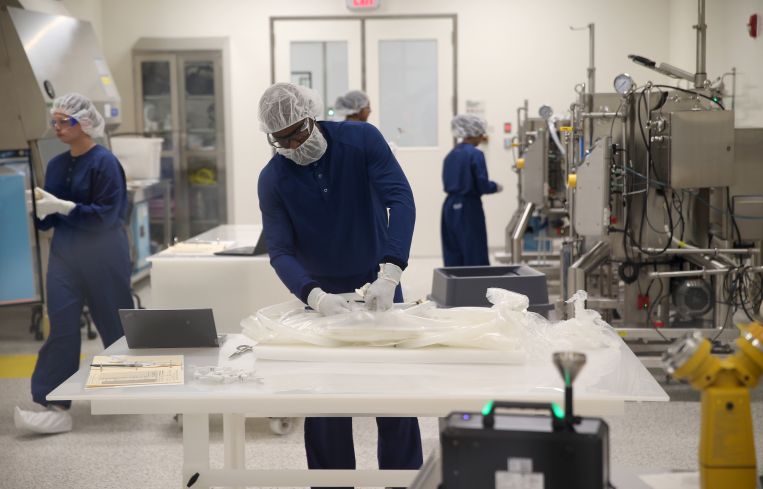Medtech, Biomanufacturing Bolster Life Sciences’ Slowing Growth: Report
By Greg Cornfield December 8, 2023 4:35 pm
reprints
While the larger life sciences real estate market confronts concerns about slackening growth and demand, the medtech and biomanufacturing sub-sectors are helping propel the industry, according to a new report from JLL.
Medtech means medical devices and testing companies, while biomanufacturing involves production of vaccines, immune modulators, antibodies, and other cell and gene therapies. The key U.S. markets that house these clusters are flourishing as medtech firms hold prominent positions in the life sciences industry and biomanufacturing plays a crucial role in the life cycle of therapeutic companies.
“The prospects and growth potential within the medtech and biomanufacturing sectors in relation to life sciences real estate are numerous,” Travis McCready, head of life sciences for JLL, said in the report. “Considering the substantial investments required and the crucial role of manufacturing operations in a company’s success, it is crucial to carefully select locations and sites that offer long-term value and optimal utilization.”
The federal government is investing heavily in medtech and biomanufacturing through the CHIPS and Science Act, and has designated 31 communities across the U.S. as Regional Innovation and Technology Hubs, including New York, Miami, Chicago, Kansas City, Baltimore and Minneapolis-Saint Paul. Since the act was signed in August 2022, private companies have announced approximately $20 billion in biomanufacturing.
“Beyond the major clusters, several emerging markets across the United States offer unique advantages, including access to talent, lower costs and supportive local environments,” said Maddie Holmes, senior research analyst at JLL. “Startups can explore these alternative markets to establish their presence and tap into local resources.”
The growth of medtech, amid the rising demand for personalized medicine, has led to a surge in the need for specialized lab spaces for research, development and manufacturing. California’s Orange County, the San Francisco Bay Area, the Boston area, Minneapolis and Salt Lake City are among key markets that are thriving with established medtech clusters.
Boston has the most aggregate medtech employment in its market at 40,433, while Orange County has the highest concentration of medtech employment as a percentage of total (nonfarm) employment at 1.78 percent. Minneapolis quickly follows with the second-highest employment at 32,074, and second-highest employment concentration at 1.71 percent.
San Diego is another strong medtech market with the fifth-highest employment, sixth-densest employment concentration and third-highest health care devices venture capital funding over the past five years. Memphis, Tenn.; New Haven-Hartford, Conn.; Boulder, Colo.; Sacramento, Calif.; and Phoenix are considered “markets to watch” for steady growth.
Meanwhile, biomanufacturing is experiencing significant growth due to breakthroughs in biotechnology and increasing demand for advanced therapies, all of which rely heavily on specialized lab spaces with strict regulatory requirements.
“All life sciences manufacturing facilities require cGMP [Current Good Manufacturing Practice] compliance, and best-in-class cGMP manufacturing facilities have stricter manufacturing application protocol and design qualifications than other manufacturing facilities,” said Kevin Wayer, president of the life sciences work dynamics division at JLL.
The key biomanufacturing markets include Raleigh-Durham, Philadelphia, New Jersey, the Boston area again and the San Francisco Bay Area, each with a strong presence of contract manufacturing organizations (CMOs), concentrations of talent, research institutions and industry collaborations. Other markets to watch include Greater D.C. and Baltimore, San Diego, Chicago and Miami.
New Jersey has the highest biomanufacturing employment at 24,428, making up 0.8 percent of its total emloyment. New York City has the most companies conducting ongoing phase 2 and 3 clinical trials — a lagging yet leading indicator for the need of biomanufacturing space.
Boulder also boasts a strong biomanufacturing employment concentration at 1.08 percent. AGC Biologics, a contract development and manufacturing organization based in Seattle, has made continuous bets on the biomanufacturing market in Boulder.
Gregory Cornfield can be reached at gcornfield@commercialobserver.com.



